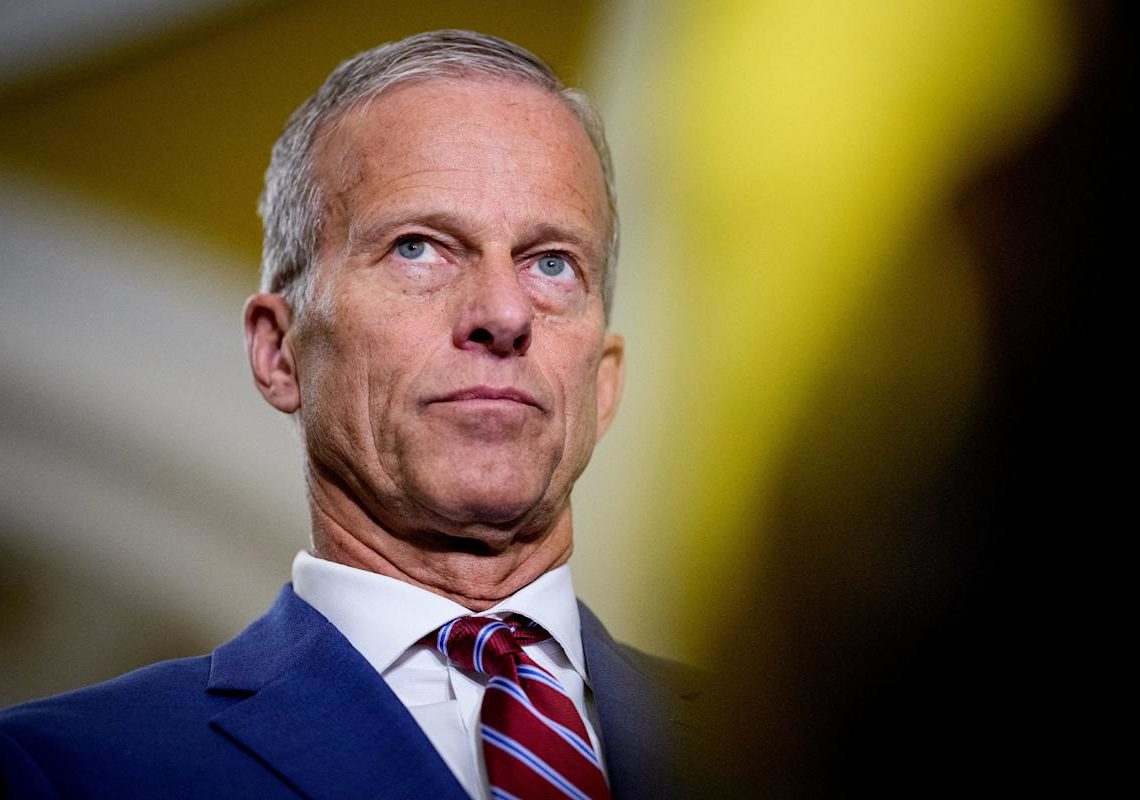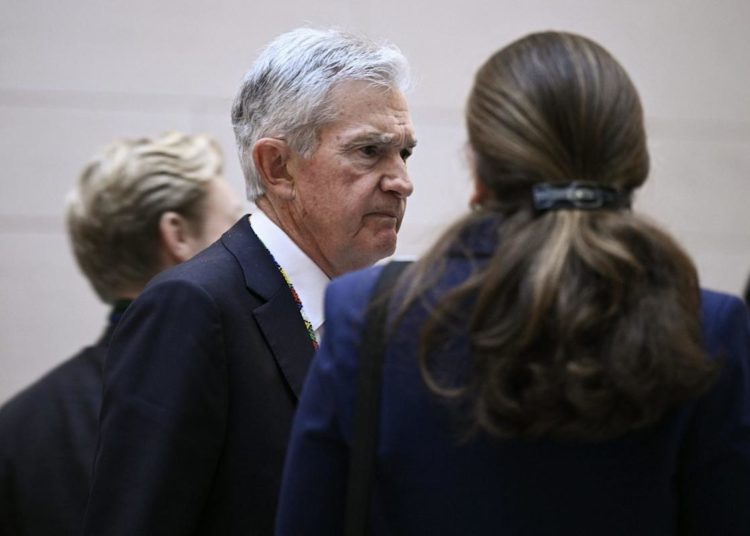WASHINGTON — President Donald Trump is facing political headwinds for his “big, beautiful bill” as Republican leaders hope to begin votes on it in the Senate this week.
Specifically, five new surveys indicate that the GOP is losing the battle of public opinion on a major piece of legislation they’re aiming to pass by July 4.
Nonpartisan polls released this month show that voters have a negative perception of the bill. The House-passed version, which is facing modest revisions in the Senate, would extend the 2017 Trump tax cuts while slashing taxes on tips and overtime, and enact a series of spending cuts to Medicaid and other programs.
A Fox News poll found that 38% of registered voters support the “One Big Beautiful Bill” based on what they know about it, while 59% oppose it.
The survey found that the legislation is unpopular across demographic, age and income groups. It is opposed 22%-73% by independents, and 43%-53% among white men without a college degree, the heart of Trump’s base.
A Quinnipiac University poll found that 27% of registered voters support the bill, while 53% oppose it. Another 20% had no opinion. Among independents, 20% said they support it and 57% said they oppose it.
A KFF poll found that 35% of adults have a favorable view when asked about the “One Big Beautiful Bill Act,” while 64% have an unfavorable view. Just 27% of independents said they hold a favorable view of it.
A survey from Pew Research Center found that 29% of adults favor the bill, while 49% oppose it. (Another 21% said they weren’t sure.) Asked what impact it would have on the country, 54% said “a mostly negative effect,” 30% said “a mostly positive effect” and 12% said “not much of an effect.”
A poll by The Washington Post and Ipsos found that 23% of adults support “the budget bill changing tax, spending and Medicaid policies,” while 42% oppose it. Another 34% had no opinion.
The bill reduces Medicaid spending through new work requirements and eligibility rules. Overall, the House-passed version is projected by the nonpartisan Congressional Budget Office to increase the national debt by $2.4 trillion over the next 10 years.
“The great, big, beautiful bill will grow the economy like it has never been grown before,” Trump, who has pushed hard for its passage, wrote earlier this month on Truth Social.
In a recent NBC News Decision Desk poll asking Americans what issue matters most to them, 51% picked “maintaining current spending levels on programs like Medicaid,” 21% picked “continuing and expanding income tax cuts and credits” enacted by Trump in 2017, and 28% picked “ensuring that the national debt is reduced.”
The Senate is eyeing some changes to the House’s bill, but nothing that alters its basic structure. For instance, the Senate is weighing less aggressive cuts to clean energy funding and more aggressive Medicaid spending reductions.
Senate GOP leaders are hoping to hold a vote on the package this week. They can only afford three defections, assuming all Democrats oppose the bill, and several Republican senators have raised an array of concerns with it.
The final product that passes the Senate will also need to go back through the House before it can go to Trump’s desk for a signature.
“It needs work. And they don’t have 51 votes,” Sen. Josh Hawley, R-Mo., told NBC News, taking issue with a provision that changes how providers are taxed. “They’ve got to fix the provider, the rural hospital issue. … They cannot defund rural hospitals.”
There are some nuances in the polling. The Washington Post-Ipsos survey found that extending the 2017 tax cuts “for people of all income levels” was popular among adults by a margin of 49%-26%, but extending them specifically for incomes above $400,000 was unpopular by a margin of 30%-49%.
The Post-Ipsos poll found that 52% of Americans supported work requirements for able-bodied adults to receive Medicaid, while 33% opposed them. But that policy became unpopular when voters were told that the CBO estimates 8 million people would lose health coverage as a result of the bill: 63% said that is unacceptable, while 18% said that’s acceptable. (The latest version of the bill is projected to result in more than 10 million losing their coverage, according to the CBO.)
The Quinnipiac poll found that just 10% of voters want to decrease Medicaid spending, while 40% want it to stay about the same and 47% want to increase it.
In recent days, the Senate bill has been scrubbed by the parliamentarian, the chamber’s in-house referee tasked with ensuring all the provisions comply with the rules for the so-called “budget reconciliation” process Republicans are using to pass it. The process allows the majority party to bypass the Senate’s 60-vote threshold, effectively cutting Democrats out of the process.
Some pieces of the bill have been knocked out in that process, according to a Democratic budget aide, including a provision to cut federal Supplemental Nutrition Assistance Program (SNAP) spending and require states to shoulder a larger burden. That will be subject to the 60-vote threshold and removed from the bill, along with a controversial policy sought by Republicans to restrict the power of courts to issue injunctions against the federal government.
Other provisions that were dropped include cuts to the Consumer Financial Protection Bureau and repealing authorizations under the Inflation Reduction Act.
Senate Republican leaders hope to roll out the remaining provisions of the bill this week and begin voting on it, with the target of passing it by July 4. No votes have been scheduled yet.
For now, Senate Republicans are crafting the bill with the goal of finding 51 votes in the chamber, even if that makes it unpalatable to the narrow House majority. For instance, they’re slashing a $40,000 cap for state and local tax deductions down to $10,000, which a critical group of House Republicans in high-tax states have made clear is a nonstarter for them.
Rep. Chip Roy, R-Texas, slammed what he called “major backsliding on the IRA green new scam subsidies” in the House bill, calling the more modest cuts a red line for him. “I’m not going to vote for a bill that does that,” Roy told reporters.
That sets up a confrontation with the House, where Republicans also have a narrow majority, in order to craft a version that can clear both chambers.
Meanwhile, Democrats are planning to make the bill a centerpiece of their message to voters in the 2026 midterm election.
“It’s no wonder the so-called moderate House Republicans continue to lie about their Tax Scam: the Big, Ugly Bill is wildly unpopular with the American public and they know their vote for it will lose them the majority next year,” Democratic Congressional Campaign Committee spokesman Justin Chermol said in a statement.
This article was originally published on NBCNews.com
The post Polls show Trump’s big bill is unpopular as Republicans stare down their deadline for passage appeared first on NBC News.



